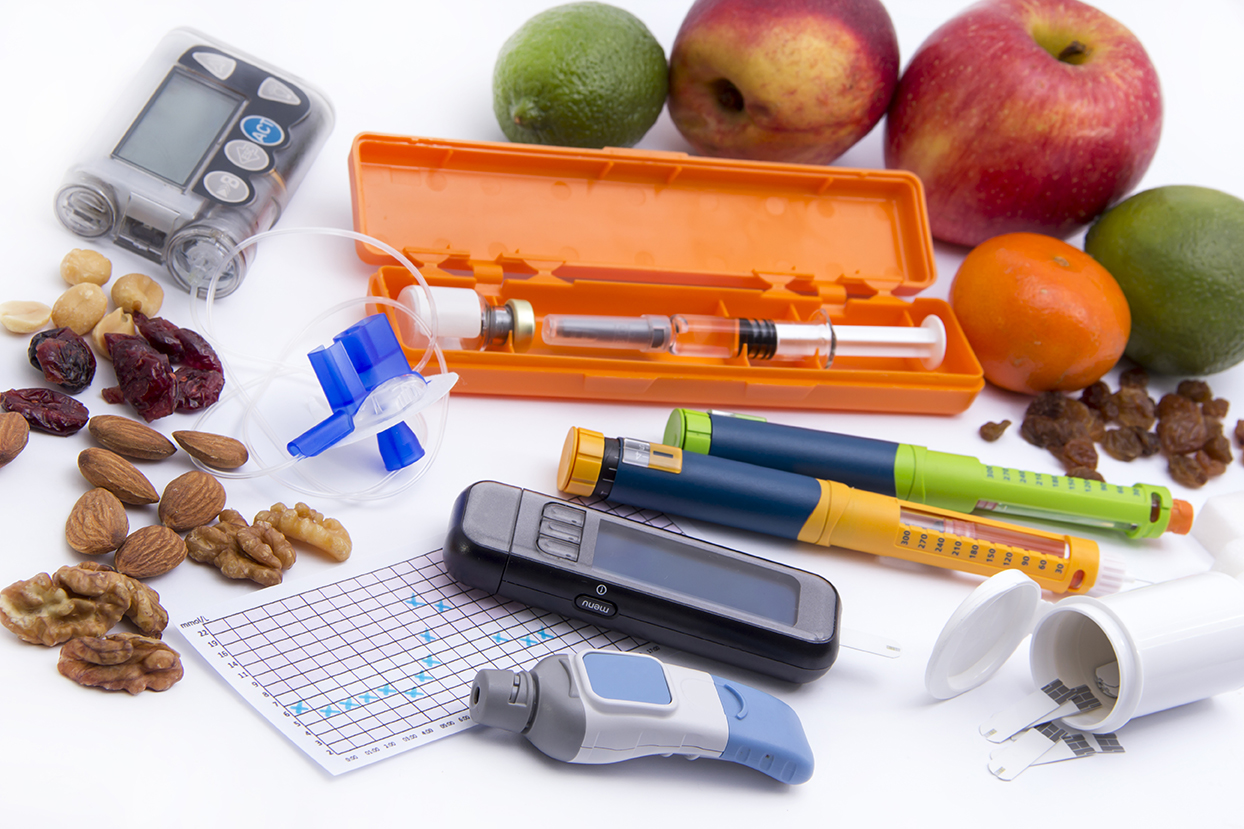The best and worst part of diabetes treatment at home or at your workplace is daily maintenance. Daily maintenance is great because taking small measures every day can keep you healthy and disease-free. It’s bothersome because it has to be dealt with every day.
When it comes to daily diabetes treatment at home, you have to maintain your diabetes supplies in pristine condition. That way, it is easier for you to deal with diabetes on a daily basis.
List of diabetes supplies
- Glucometer for blood sugar testing at home
- Glucometer test strips
- Insulin
- Lancet devices and lancets
- Diabetic shoes and diabetic socks for feet protection
- Urine test stripes to measure ketone levels (for type 1 diabetes)
- Glucose tablets
Find more about latest diabetes supplies to control diabetes at home. Enquire Now.
It’s important that you take care of these essentials in order to continue your regimen without any disruption. The last thing you want is the glucose meter’s battery running low leaving you guessing what your current blood sugar levels are!
Not having a fully covered diabetic shoes in monsoon, and not being aware of low sugar levels are some risks you are prone to when your diabetes supplies are not maintained properly.
Tips for protecting your diabetes supplies
Maintain your glucometer
A glucometer is one of the most important tools in your diabetes supplies. You’ll need your glucose monitor to measure your blood sugar levels as prescribed by your diabetes doctor.
In order to keep your glucometer in top condition:
- Keep it out of extreme temperatures – intense heat and freezing cold. Most glucometers work well only between 10 and 40 degrees centigrade
- If you’re a frequent traveler and have to keep a glucometer inside your vehicle then ensure it’s taken out on days when it’s really cold or hot.
- Disinfect your glucometer using registered wipes or disinfectant towels
- Store your glucometer where there is no humidity. Store in a place that’s cool and dry
- Check for the battery’s expiry date
- If you find any error in your blood sugar readings, take the glucometer to your diabetes doctor or call the manufacturer’s customer care.
Protect your test strips
Test strips are essential to keep track of your glucose levels. That is why you should take extra care to keep them safe.
- Prevent the strips from being exposed to extreme temperatures and make sure the cap is tightly closed on the canister.
- It is important to maintain the integrity of the strips, and to lock out moisture and dust.
- Never share test strips with others or purchase test strips that are pre-owned (do not fall for the cheap test strips advertising)
- Use a control solution to test the quality of your glucometer and test strips
Storing Insulin
A vital component of your diabetes regimen is insulin. Keeping insulin cool and not in freezing temperatures is important. Hence, it’s best to store your insulin pens and vials in a refrigerator on a normal setting. It’s easy to carry it around without worrying of it spoiling as long as it’s kept outside of direct sunlight.
- Keep insulin away from heat and cold
- Keep insulin away from sunlight
- While storing insulin in the refrigerator, use appropriate temperature settings
- While travelling, keep your insulin in a proper carry bag that is prescribed by the manufacturer
- Check if the insulin is cloudy, clumpy, or clear before injecting
- Never shake the insulin. You should gently roll it
- Check for the expiry dates regularly
Organize your diabetes supplies
Having your diabetes supplies accessible at all times makes it easy to stay organized. Store all your medication neatly in a designated area. Additionally, you can use a labeled cabinet for storing needles, test strips, lancets, pen needles, syringes, and alcohol wipes.
Keeping your family members informed about your supplies at the specific locations is a good idea so they know where to find it and also not to touch it unless you’re in need of it. Such a practice would avoid any risk of infection.
Know more about latest diabetes supplies and how best to control diabetes at home. Enquire Now.











